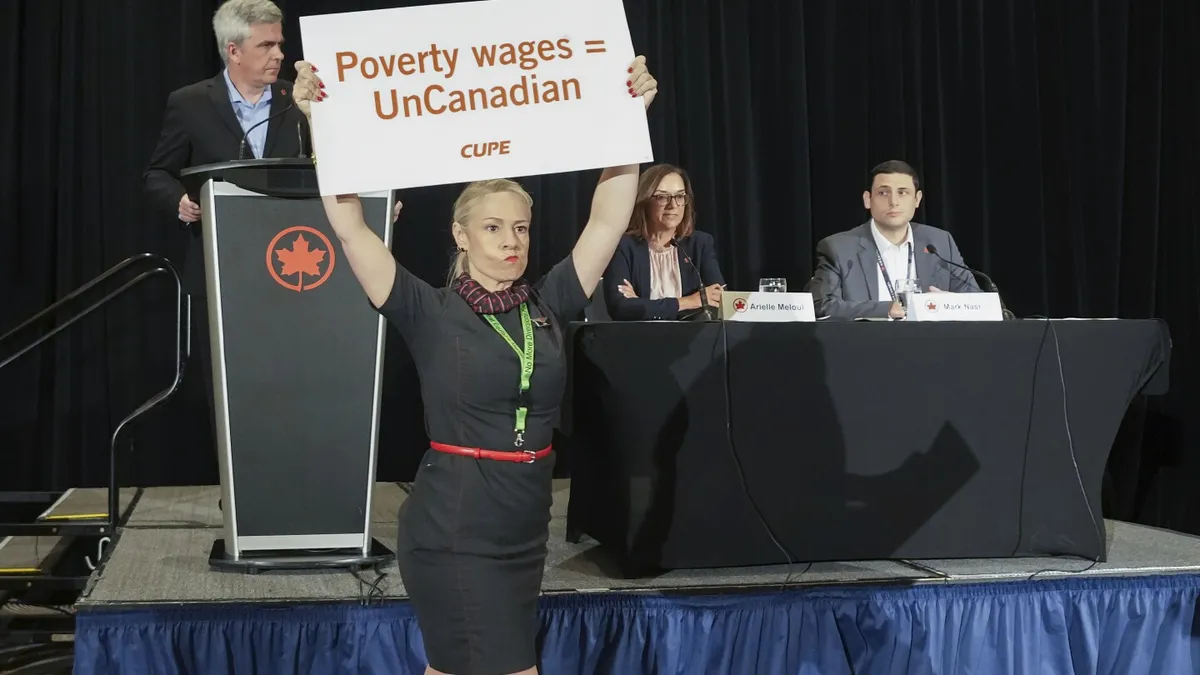
Air Canada has initiated a series of flight cancellations ahead of a looming work stoppage by its flight attendants, a situation that could significantly affect hundreds of thousands of travelers. The potential complete shutdown of Canada’s largest airline is expected to impact approximately 130,000 travelers daily.
The union representing around 10,000 Air Canada flight attendants issued a 72-hour strike notice on Wednesday, prompting the airline's management to respond with a lockout notice. Mark Nasr, the Chief Operations Officer for Air Canada, announced that the airline has begun a gradual suspension of both Air Canada and Air Canada Rouge operations. “All flights will be paused by Saturday early morning,” he stated, emphasizing that this strategy is designed to ensure an orderly restart, which could take up to a week to complete.
Nasr detailed that the initial wave of cancellations would affect several dozen long-haul overseas flights scheduled for departure on Thursday night. “By tomorrow evening, we expect to have cancelled flights affecting over 100,000 customers,” he added. By 1 a.m. on Saturday morning, the airline aims to be completely grounded, which will impact around 25,000 Canadians traveling abroad, potentially leaving them stranded. By the end of Friday, they anticipate cancelling approximately 500 flights.
Customers whose flights are cancelled will be eligible for a full refund. In addition, Air Canada has coordinated with other Canadian and international carriers to provide alternative travel options “to the extent possible.”
Arielle Meloul-Wechsler, head of human resources for Air Canada, stated that the airline's latest compensation offer includes a 38% increase in total compensation, encompassing benefits and pensions over four years. However, the union has raised concerns regarding what they characterize as flight attendants’ “poverty wages” and unpaid labor during inactive flight times.
During a news conference on Thursday, some flight attendants displayed signs reading “Unpaid work won’t fly” and “Poverty wages = UnCanadian.” Natasha Stea, a representative for flight attendants in Montreal, expressed her belief that the airline is relying on government intervention. She advocated for a fair and equitable contract, stating, “There is still time. I’m sure if we sat down and talked, we could actually get to an agreement.”
The union declined the airline's proposal to enter binding arbitration, preferring to negotiate a deal that its members could vote on instead. Meloul-Wechsler noted that they have reached an impasse but remain open to discussions and consensual arbitration. She warned that if a resolution is not achieved, the ensuing “very serious disruptions” could lead the company to seek government intervention.
Federal Jobs Minister Patty Hajdu has urged the union to respond to Air Canada’s request for arbitration and encouraged both sides to reach an agreement independently. She expressed her belief that effective deals are best negotiated at the bargaining table, highlighting the importance of collaboration in resolving this labor dispute.